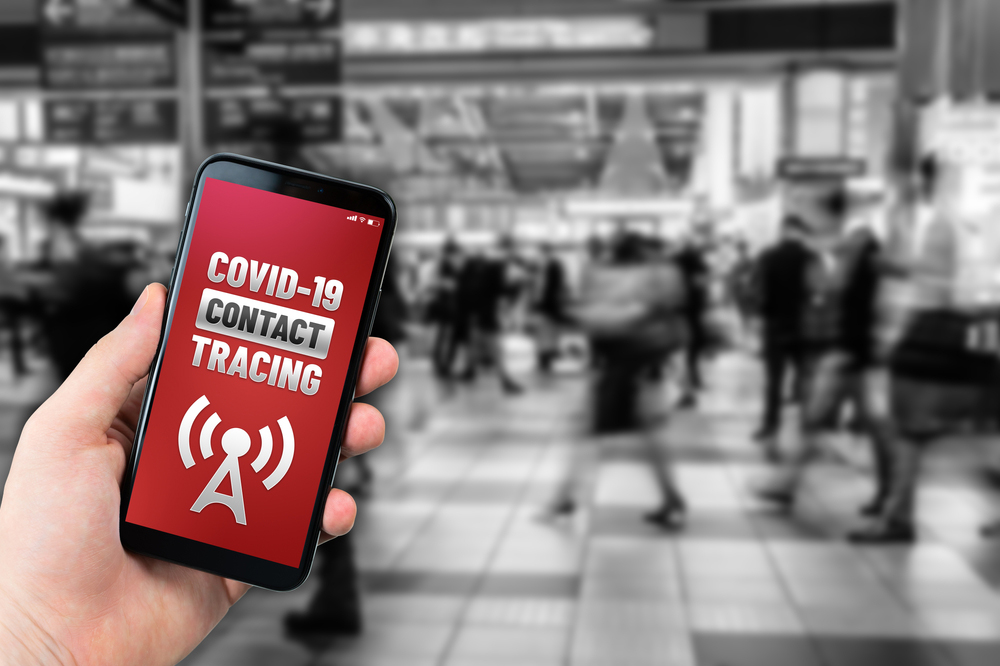As coronavirus cases surge across the United States, contact tracers are in higher demand than ever. In fact, it is predicted that as many as 300,000 contact tracer positions will be needed this year alone, and hiring a qualified group of individuals will be no easy feat—these individuals will be critical to containing the spread.
Despite many who had hoped that the pandemic would slow down this summer and that the world would return to a new normal, it has become apparent that hiring for a contact tracing role presents its own set of challenges. It is a brand-new role, so recruiters are largely unable to rely on candidates’ past experience and may be receiving a higher volume of applicants, given the current flux in job openings and reopenings.
The profile of a successful contact tracer calls for a unique combination of analytical and interpersonal skills. Up until recently, most talent teams hadn’t had to recruit for this profile simply because contact tracing didn’t really exist in its current capacity.
As talent teams approach this new role, they need to be on the lookout for candidates who will succeed by having the right combination of skills and demeanor to help them draw out key information from people exposed to the virus in an effective yet sensitive way.
So what should recruiters look for in candidates who are interested in pursuing contact tracing? Here are six characteristics contact tracers must have to be successful:
1. Communication and Interpersonal Skills
A key aspect of the job as a contact tracer is to conduct virtual interviews to both gather information and provide it to various people. Even though a script may be provided for these calls, the contact tracer still needs to adjust his or her style and questions depending on the person the tracer is speaking to.
Successful contact tracers will need to consider and respond appropriately to the needs, feelings, and capabilities of diverse people in different situations, as well as exhibit the ability to show empathy for individuals during a time of crisis and distress. They will also need to communicate with their colleagues and leadership to inform or collaborate on complex cases and situations.
2. Cultural Sensitivity
Given the personal nature of the job, another key characteristic to look for is cultural sensitivity. Part of the job is to notify people of exposure; provide disease and transmission information; and gather data on demographics, living arrangements, and daily activities.
A successful contact tracer will have the ability to effectively interact with people of different cultures and socioeconomic backgrounds, as well as collect this sensitive but important information, without any bias or judgment in the process.
3. Organization Skills
Contact tracers’ work includes a variety of tasks that need to be prioritized and structured for efficiency. They not only are reaching out to potential contacts but also will have to track and identify key contacts in a timely manner.
Time is of the essence, which is why the ability to prioritize and stay focused, as well as follow through on cases in a timely manner, will be key for success in this role.
4. Critical Thinking
Contact tracers will, in some ways, have to step into the shoes of a detective. They will have to research and sort through information and decide what information to act on. This demands critical thinking skills.
The ability to ask the right questions, correctly evaluate the information, and draw the right conclusions will help contact tracers more effectively do their job.
5. Work Ethic
The role as a contact tracer will oftentimes be remote and offer autonomy. Having a professional attitude, as well as a willingness to perform to the best of their abilities, will therefore be important characteristics to look for in contact tracers. It’s critical for these individuals to recognize the severity of the situation and importance of a timely response to new situations.
6. Confidentiality
The work as a contact tracer will naturally include handling highly sensitive information. Key characteristics to look for will be integrity and the ability to handle personal and confidential information with discretion and professionalism.
As the future of the COVID-19 outbreak is uncertain, it is abundantly clear that organizations are going to be hiring contact tracers. The in-demand position is critical in determining how the world can reopen in an efficient but safe manner.
Dr. Ben Porr is the VP of People Science at Harver and strategic advisor to the contacttracers.com initiative that connects potential contact tracers with hiring organizations. Dr. Porr is also an Industrial-Organizational Psychology practitioner with vast expertise across the full employee lifecycle including talent assessment, organizational development, and people analytics.
At Harver, Dr. Porr helps organizations build and implement unique assessment frameworks predictive of success in their specific context. He is an active member in the Industrial-Organizational Psychology network and volunteers on multiple committees and presents his work at local and national conferences.
The post Needed Now: Contact Tracers to Help Stop the Spread of COVID-19 appeared first on HR Daily Advisor.
